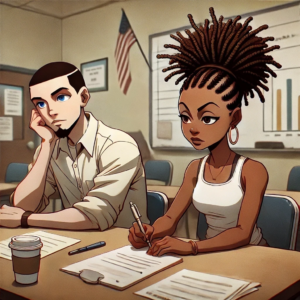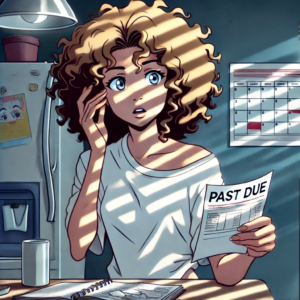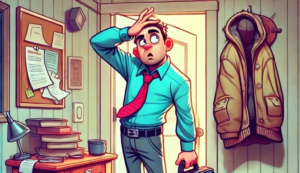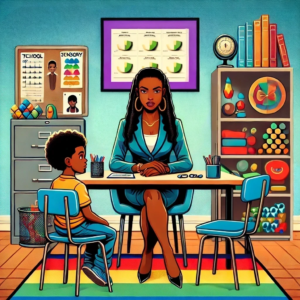Hey there, dear reader! Let’s talk about something that sounds a lot scarier than it should be: PTSD, or Post-Traumatic Stress Disorder. Imagine PTSD as that uninvited guest who crashes your party, eats all the snacks, and doesn’t know when to leave. It’s a bit like that, but on a much more serious and impactful level. But don’t worry, we’re going to navigate this topic with a bit of humor and a lot of heart.
The Basics
First, let’s get on the same page. PTSD isn’t just for war veterans or action movie heroes. It’s an equal-opportunity annoyance that can affect anyone who’s experienced a traumatic event. And here’s the kicker: it’s got quite the VIP pass into the lives of neurodivergent individuals. Studies show that neurodivergent folks, like those with autism, ADHD, or other conditions, are more susceptible to developing PTSD. Yeah, as if life needed to be more interesting, right?
The Stats Don’t Lie
Let’s dive into some statistics, but don’t worry, I promise not to bore you to tears. According to various studies, about 1 in 4 people with neurodivergent conditions also deal with PTSD. That’s 25% of an already unique crowd trying to manage an extra layer of challenge. Imagine juggling flaming torches while riding a unicycle – on a tightrope. Yep, it’s kinda like that.
Why the High Numbers?
You might be wondering, “Why are these numbers so high?” Great question! Neurodivergent individuals often face increased stress due to social misunderstandings, bullying, or just trying to navigate a world that wasn’t exactly designed with them in mind. Think of it as trying to play a video game on expert mode without the instruction manual. The result? A heightened risk of traumatic experiences and, consequently, PTSD.
The Impact
So, what’s it like living with PTSD on top of being neurodivergent? Picture this: your brain is a supercomputer (because it totally is), but now it’s running a bunch of annoying pop-up ads that won’t go away. These “pop-ups” can be flashbacks, severe anxiety, or even physical symptoms like a racing heart. It’s exhausting and can make daily life feel like navigating a minefield.
A Light at the End of the Tunnel
But hey, it’s not all doom and gloom. With the right support, therapy, and maybe a dash of humor, managing PTSD is entirely possible. Cognitive Behavioral Therapy (CBT), Eye Movement Desensitization and Reprocessing (EMDR), and other therapeutic approaches can make a world of difference. And let’s not forget the power of community – connecting with others who get it can be incredibly healing.
Conclusion
So, there you have it! PTSD might be the uninvited guest at the neurodivergent party, but it doesn’t have to ruin the celebration. With understanding, support, and a touch of humor, we can help our brains handle those pesky pop-up ads and keep the party going strong. Stay strong, stay informed, and never hesitate to reach out for help if you need it. After all, even the best tightrope walkers need a safety net.







